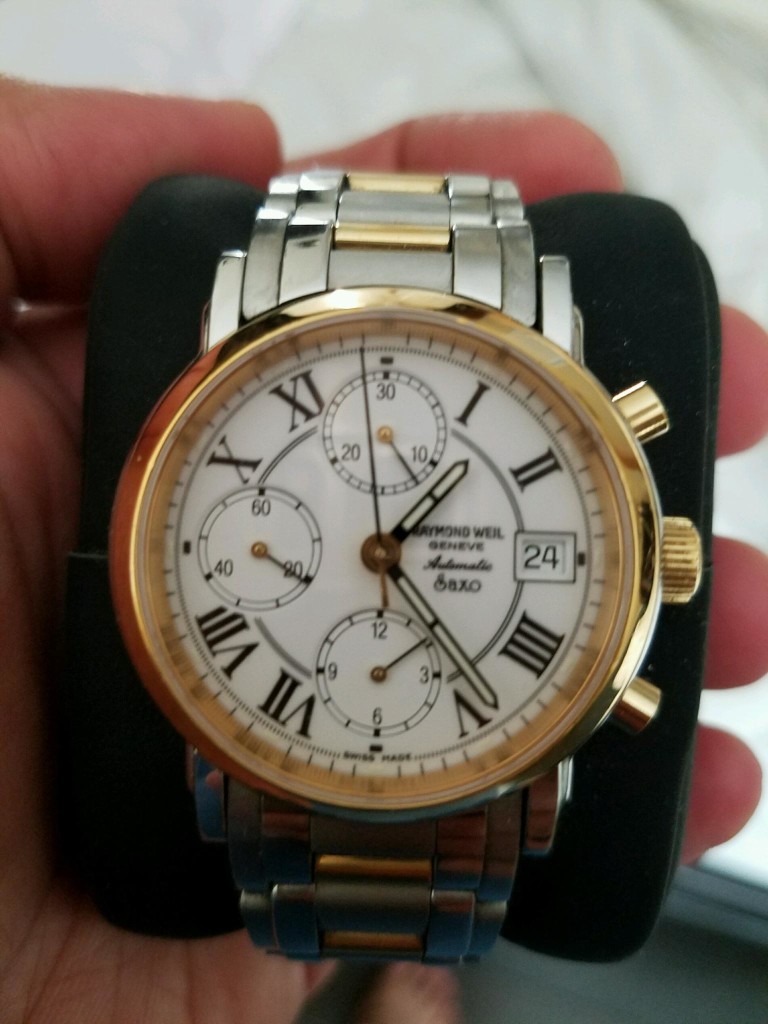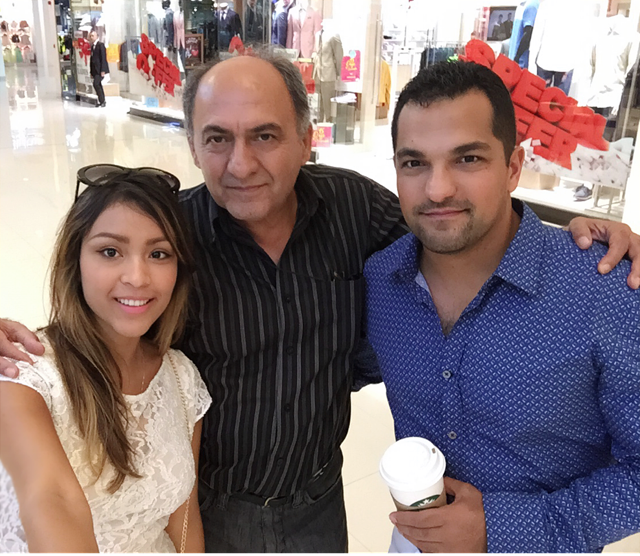
Those of you who know my story know that I was raised by a struggling single mother for the majority of my life. What you may be wondering is who or where my dad is. This Father’s Day may be the perfect time to have such a conversation so that hopefully it can help many of you both as a parent or as a child of a parent.
When I was 3 years old, my mom and I escaped the Iranian revolution and ended up in France. My dad at the time was the president of one of the largest financial institutions in Iran and also very successful in his corporate career.
While he suffered from a drug addiction and other issues, his work was always praised by many. It’s actually funny as he originally didn’t even want a child according to my mom, always with the fear that he would lose his momentum at work, or his time to himself.
After we left for France, my dad decided he would join us later and in the meantime help my mom get situated with being alone in France by sending money and assets that she had kept and couldn’t take with her, as we had to flee in an urgent fashion.
Three years later, my father showed up only 1 time in France to see mom, gave her $100, and was never seen again.
Their divorce was finalized two years after and I never saw my dad again.
On my 18th birthday, he sent me a nice $5,000 watch with my aunt that was visiting Europe at the same time I was. No letter, no contact other than a watch. I never had an expensive watch, so I kept it and wore it.

Years past and without any of her original money or help, my mom established herself once more as an entrepreneur in France, only till they granted her a VISA after 11 years and we finally got to come to the United States.
Last year, I visited Dubai (it sucked) and if you follow me on Instagram you would know why but long story short, it pretends to be like Vegas, but it fails royally at just about everything except food and accommodations.
To my surprise, my dad actually visited Dubai during that same time to meet me for the first time after 30 years.
He was nervous, spoke broken English, and was now retired. He had heard of my success and what I had accomplished and simply wanted to meet.
I originally assumed that it was one of those, “now that you are important and I am not, I am interested in seeing what I can get out of you scenarios” but it really wasn’t.
He genuinely wanted to meet and his nervousness was making him shake. My entire family, including my mom, always believed that I was mad at my dad for leaving, but I certainly wasn’t and had no fear or nervousness in meeting him.
You could say I am not very emotional or that I didn’t think of it as an emotional moment but rather that I am meeting another adult for the first time.

The point of me sharing this with you is exactly this. I never was mad at my dad for anything, not even that he left as you may have read in Third Circle Theory,
I am not a believer of right or wrong choices, but rather believe that we all take actions and are held accountable to those actions, nothing more.
My dad took the action of leaving our family and as a result, that meant that he wasn’t and will never be allowed to come back, but it doesn’t mean that he cannot have a relationship with me as a human being, but his title of father, dad, or whatever you call it, left with him that day.
While my dad and I made peace in the sense that we both accepted the idea of remaining in contact, that contact will be limited to email, letter, or simple means of communication.
My uncle on the other hand, took the place of my father all these year and has and always be the father figure that I appreciate for his selfless sacrifice when all others turned their backs on my mom and I.
My uncle, as a father, was far more than the simple idea of financial assistance or shelter, but instead was really the influence someone like myself needed.
I realized three key things that have helped me become who I am as a result of my uncle’s parenting skills, and since this is Father’s Day weekend, I am only focusing on his side of it rather than my mom.
He Never Made Me Believe Luxuries Came Without the Work
As a successful businessman and executive, my uncle had the means to buy me many luxuries, but yet never did. He always exposed me to them, but never allowed me to experience them without the work associated with them.
He took me on car test drives only to remind me of what I couldn’t have, but was allowed to work for. He would take me to the mall and address my needs but never give me anything I wanted without an exchange of some sort.
This practice while very young was a constant reminder that I could have everything I want in life, but everything had a cost or had to be given with merit, not just because.
Teaching me to focus on building the life I wanted, not wait for it to be given to me.
He Gave me $20 Each Week to Prevent me From Losing Focus
While some called it an allowance, I called it a reminder. Each week, my uncle would attach a $20 bill on his forehead and I couldn’t just have it without doing any chores or anything else for it.
He did so to keep me pointed in the right direction, without creating limitations.
By associating chores to such a small allowance, I would have taken a liking to physical work and would have actually misunderstood the value of the $20. The real value was in keeping me headed in the right direction, rather than telling me what to do.
Even during his worst financial years that followed 2 years after our arrival in the states, he continued this ritual to keep me going and not worried of the situation we were in.
He Offered Perspective, not Instruction
This was, I believe, the key to my success in my later years, as this seemed to be something that ran in our family as my mom always did this too.
For the mind to truly accept and apply information, it has to have a sense of free will (this is also by the way something my new book on sales teaches).
When you offer perspective, you offer direction. When you offer instructions, you push a command or set an expectation.
I think it is important especially in earlier years to not focus so much on giving your children the same instructions you had, but allow them to adapt to their environment (which is different from yours), and keep in mind perspective and direction.
We need to grow from within, and cannot be our best following instructions, but we can go further understanding the past while creating a strong future.
Both my mom and uncle believed that, and their guidance allowed me to seek my own opportunities while making sure I don’t repeat their mistakes.
While I have no kids as of today, I certainly still have a very deep understanding of how we evolve as individuals (you know this if you read Third Circle Theory) and therefore share with you these three things that hopefully are going to one day help you influence anyone who considers you their father or to be a father figure to them.
I hope for all of you who are fathers that you are upholding your heritage by ensuring you position your children not to follow in your footstep but to surpass them.
As for my dad, I don’t dislike him or have any hate towards him, but I do understand now after meeting him for the first time last year, why his absence played a significant role in my success and that his personality and views are so far and closed compared to my mom, that his influence would have hurt more than helped.
As Steve Jobs said it best, “We can’t always connect the dots looking forward, but it is when we look back that we make sense of our lives and why certain events happened the way they did.”
Happy Fathers Day to all of you and enjoy your day.
– Pejman



